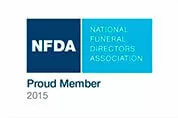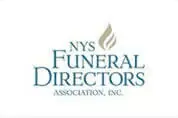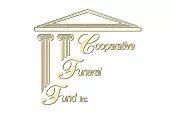Regardless of your cultural background and beliefs, the loss of a person that you hold dear is never easy. Funerals are ritualistic practices that help you move on from grief and step towards the acceptance of a loved one’s death.
A Jewish funeral service can be instrumental not only in ensuring that the deceased is properly prepared for interment, but also in easing the difficult process of accepting loss. Funerals are as much about honoring the deceased, as they are about helping surviving families and friends carry on with life without their departed loved one. They offer an opportunity for communities to share in their loss and grief while expressing their love and respect to the deceased.
However, funerals nowadays have become huge, money-making businesses, with many funeral homes being owned by large corporations. This has caused prices of services to inflate. Fortunately, there are still many independent, family owned funeral services that earn a modest profit and keep their services (and prices) true to the sacred profession.
What makes funerals so expensive?
A Jewish funeral service is much like other celebratory ceremonies such as birthdays and weddings. Costs vary according to the type of service you wish to have and the amount of work that will go into the preparations. Although you typically don’t have to spend as much on a funeral as you would on a wedding, it is worth remembering that a funeral home is a round-the-clock, labor-intensive operation that maintains extensive facilities, ranging from chapels and viewing rooms to limousines, hearses, and funeral merchandise. These and many other expenses must be factored into the cost of their services. For instance, funeral directors have to make appropriate arrangements, file the necessary forms, deal with doctors and rabbis, newspapers, and other service providers, and see to every necessary detail of the funeral.
 The Real Job of a Funeral Director
The Real Job of a Funeral Director
Very few people realize the true extent of the role that funeral directors play in making funeral arrangements. Their job begins when a grieved family member calls for assistance and only ends when all the wishes of deceased and the family are fully met. They are responsible for so much more than people might think.
In fact, they must be knowledgeable on laws governing the death care industry. Because of previous issues and abuse of position by those in the industry, funeral directors are now required by law to be upfront about the kinds of services they can provide clients and exactly what they charge for such services. They have to discuss all these matters on their first encounter with a potential family. They must likewise present a general price list to all who inquire about their services, disclosing exactly what they can do along with their asking prices.
Creating this price list, presenting it to all potential clients, and adhering to everything that it stipulates is a huge part of a funeral director’s job—and one that requires a great deal of knowledge and expertise about the death care industry and the ever-changing laws that govern it.
Apart from their administrative duties like making arrangements for the transportation of the body, completing all the necessary paperwork, and implementing the choices and wishes of the family regarding the funeral service and the final disposition of the body, they also act as compassionate caregivers, listeners, advisors, and supporters to the families they serve. More than running a business, they genuinely care about the wellbeing of each family they serve.
The reality is, you can never go back and do a funeral over, which is why we strive to get things right the first time. This is the kind of commitment you can expect from Weinstein Chapels.


 The Real Job of a Funeral Director
The Real Job of a Funeral Director




